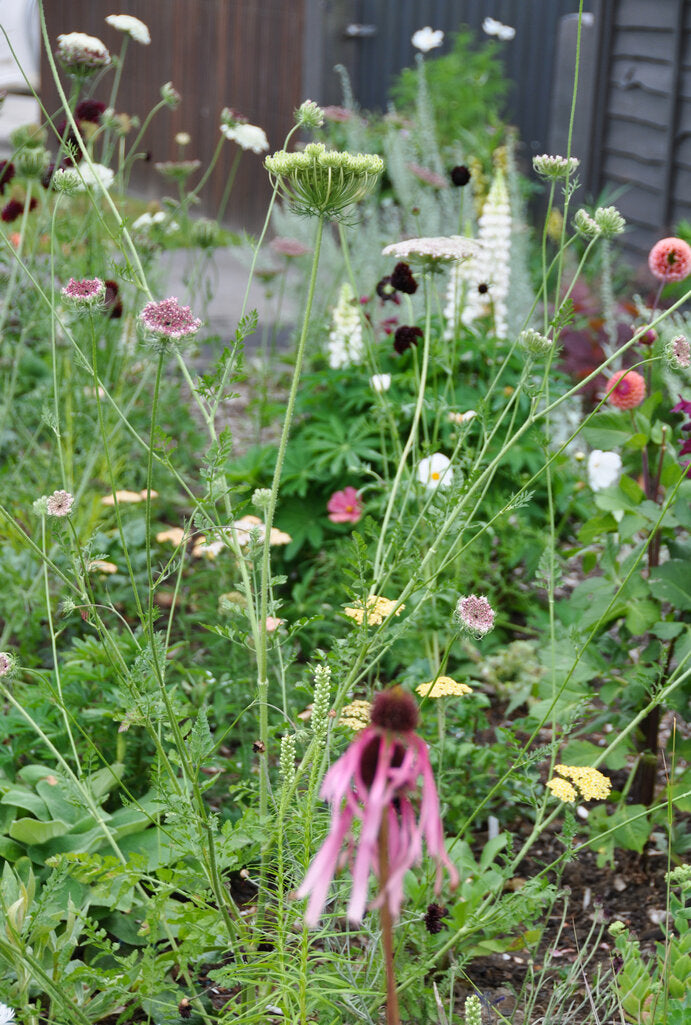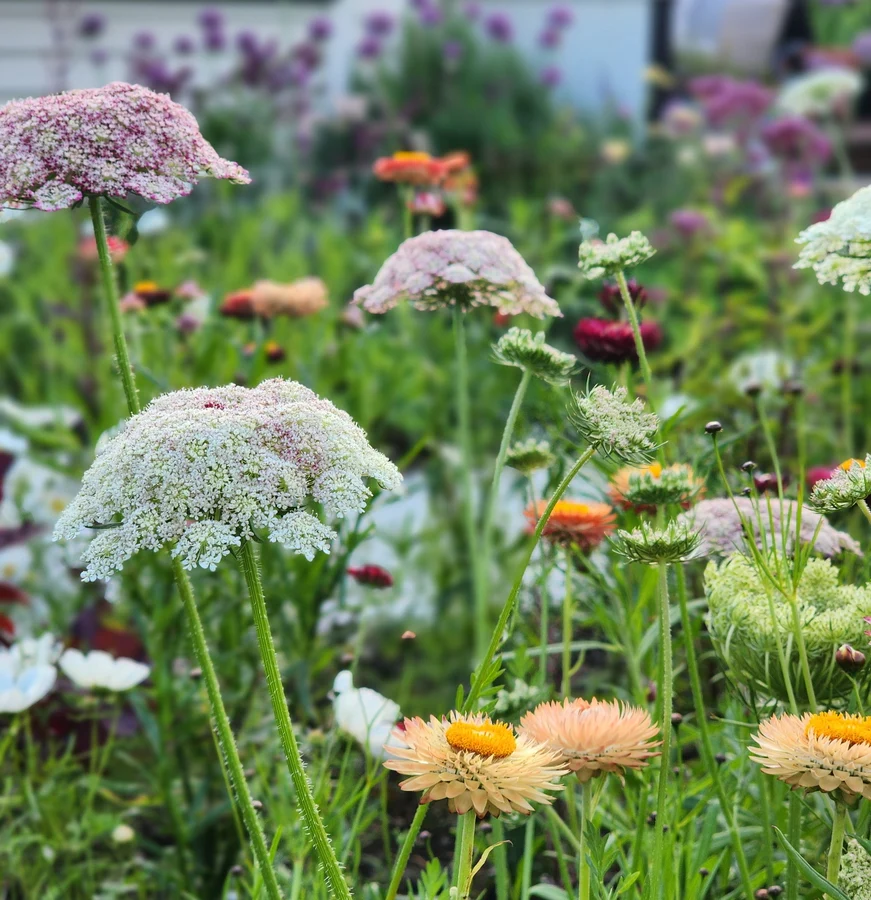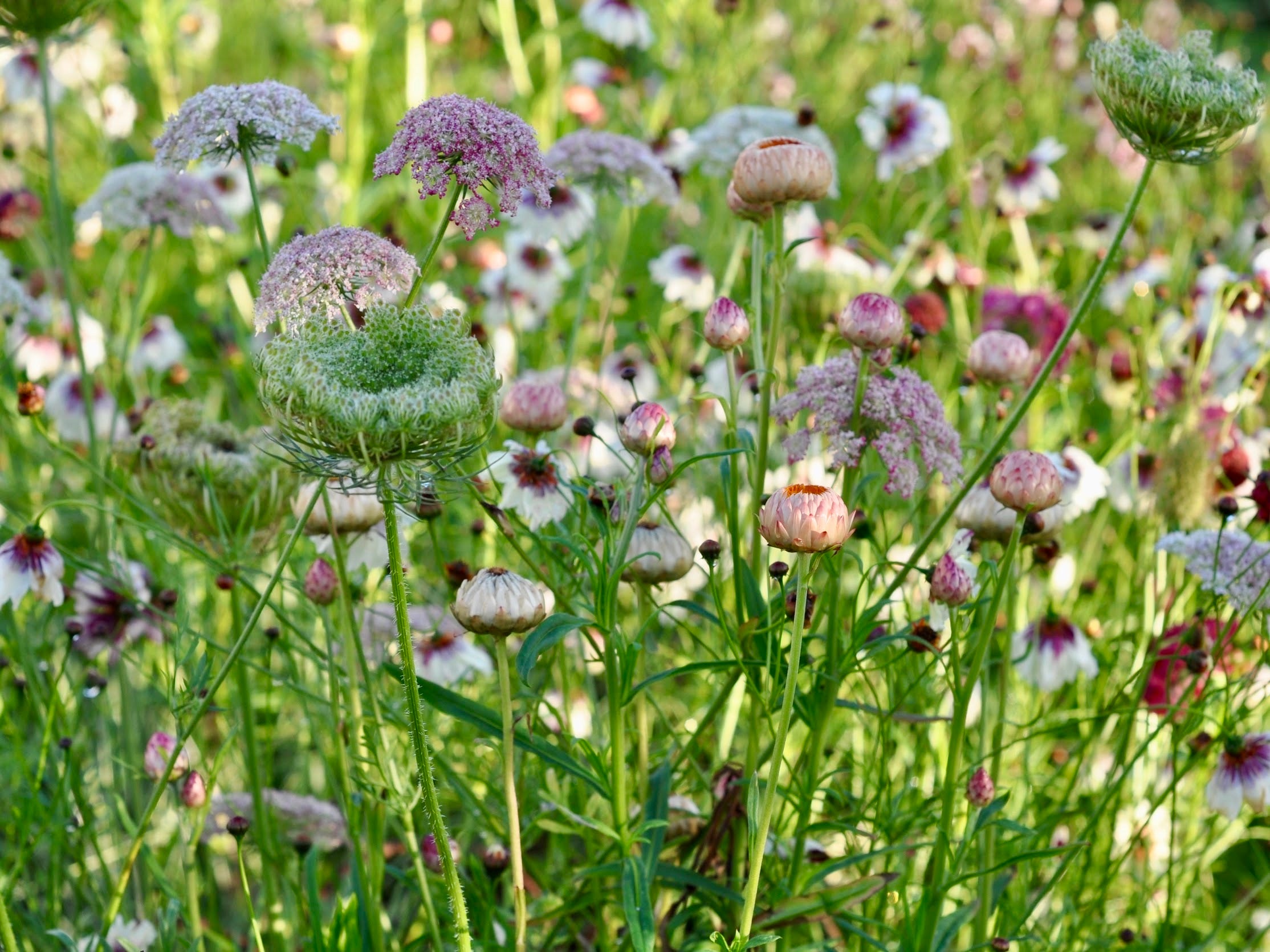
Here to help you create your dream garden
SHOP COLLECTIONS
-

PERENNIAL FLOWER SEEDS Faigan X Ripley
This collection of perennial seeds was selected in collaboration with Violet Faigan....
A few helpful definitions
-

ANNUALS
SHOP ANNUALSThese are the easiest flowers to grow from seed. They complete their lifecycle within one year so unless they self seed, they will not return the following year. I love that I can adjust the palette of my garden each year by changing the collection of annuals that I grow.
-

HARDY ANNUALS
SHOP HARDY ANNUALSLovers of the cold, these seeds are best sown in Autumn so the seedlings can overwinter and flower in spring. The seedlings are hardy enough to survive frost and the plants tend to grow taller and stronger than ones sown in spring.
-

BIENNIALS
SHOP BIENNIALSComplete their lifecycle in two years. In their first year they establish their leaves and roots. They over winter as a plant and in their second year they flower and then die. Often Biennials like foxglove readily self seed and providing you with ongoing plants. You will find some Biennials in our Perennial sections.
-

PERENNIALS
SHOP PERENNIALSThese plants live for at least two years and often won't flower until their second year. Most perennials can be divided as they mature giving you more plants. I plant annuals between my perennials while I'm waiting for them to bulk up so my garden is less gappy.

VERGE GARDEN
I replaced the strip of grass outside the front of my house with this slightly wild garden made up of flowering perennials and annuals. It obscures the fence, saves me from mowing, keeps the bees happy but best of all gives me a lovely connection with my neighbourhood. Below is a collection of seeds for some of the plants I have growing here. The rear of the garden is in shade and the ground is very dry. The plant that is thriving the most is Phlomis russeliana, I treasure it for its structural form but also the evergreen leaves.
VERGE GARDEN SEED COLLECTION
-
Achillea 'Summer Pastels'
Regular price $6.00 NZDRegular priceUnit price / per -
Aquilegia 'Ruby Port'
Regular price $6.00 NZDRegular priceUnit price / per -
Artemisia lactiflora
Regular price $6.00 NZDRegular priceUnit price / per -
Cornflower 'Black Ball'
Regular price $5.50 NZDRegular priceUnit price / per

MEADOW OF ANNUALS
I planted this garden bed in my back yard using annuals with loose form and movement to bring a meadow like feel. First to flower in late spring were Valerian, Orlaya, Larkspur Agrostemma and Poppies. As summer came the Strawflowers, Dara and Scabiosa came into bloom and were joined a few weeks later by Cosmos, Coreopsis and Phlox. Unfortunately the wind wasn't too kind to the taller plants so I've planted some perennials and grasses to help protect the annuals in the coming years. Below is a collection of seeds for the plants I used.
MEADOW OF ANNUALS SEED COLLECTION
-
Agrostemma 'Ocean Pearls'
Regular price $5.50 NZDRegular priceUnit price / per -
 Sold out
Sold outCoreopsis 'Incredible Swirl'
Regular price $6.00 NZDRegular priceUnit price / per -
Cosmos 'Double Click Cranberries'
Regular price $6.50 NZDRegular priceUnit price / per -
 Sold out
Sold outStrawflower 'Susie's Mix'
Regular price $5.50 NZDRegular priceUnit price / per

Tips for seed raising success
-

Handling Tiny Seeds
Tiny seeds can be difficult to sow. I like to use a trick I learnt from Monty Don of wetting the end of a toothpick or pencil and transferring the seed this way.
-

Germination
The most important factor for germination success is the temperature of the soil. Some seeds need more warmth than others so check your seed packets for the optimal temperature. A heat pad can be helpful especially if starting inside in August/September.
-

Light
Once your seeds have germinated, a good overhead light source is important. This is to ensure you seedlings grow strong and don't become leggy from stretching for light. I put mine in a plastic storage box outside with the lid ajar but you could use a glasshouse.
-

Sowing Medium
A good seed raising mix is made up of fine particles which shoots can easily push up through and the roots can spread freely. I like to use coconut coir or Daltons seed mix for germination then I move my seedlings on to a potting mix. I do this once they have their second set of leaves.
























